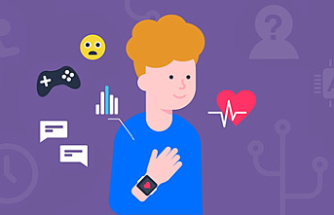The Society of Automotive Engineers has defined six levels of vehicle driving automation systems. We are currently at level 2, where cars can control acceleration, steering, and braking but still require drivers to be engaged. Level 5 autonomy would be fully autonomous cars.
The transition to the future has not always been easy. The technology is constantly improving, so drivers adapt, and government tries its best to keep up.
The 2022 Honda Civic is one of the latest autonomous vehicles. The standard Honda Civic can now drive itself down the road, and then stop in front of a stopped vehicle.
Honda stated to CBS News that the system was not designed or capable of detecting when a road ends. Brook Silva-Braga, CBS News, reports that Honda also said the system cannot detect the end of a roadway and is not being marketed.
Kelly Funkhauser, a researcher who tests self-driving technology at Consumer Reports, fears that such systems are so reliable that drivers won't be ready for the inevitable exception.
She said that there's a tendency for people to seek out stimuli when they're bored. Monitoring a system that is performing well can be very boring, but the problem is that the features aren’t up to the task yet.
Automakers see the promise of self driving as both safety and convenience. However, neither is fully realized yet.
Is the person driving, or are they not driving? Silva-Braga stated that if the person is driving, then all this stuff seems meaningless. If they aren't driving, you can't force them to drive at a second's notice."
"Exactly. And that's exactly what they're saying. They're warning you with legalese, 'Take control,' 'cause they don't want to take responsibility. Attention, even though it is boring, we are human beings and you don't have to do this, but we don’t want any responsibility for our system. Funkhauser said that this is where we are.
GM had in mind self-driving cars as early as the 1950s. They promised them in 2018 that they would deliver within one year.
Elon Musk stated previously that a Tesla would be self-driving across the United States by 2017. The company is still facing federal investigations and lawsuits for alleged failures in its autopilot system.
Waymo has launched self-driving taxis, but the high-end sensors make it prohibitively expensive for mass-produced vehicles. TuSimple launched a self-driving option for its semi-tractor-trailers, but they still come equipped with human safety drivers.
Funkhauser stated, "Many people are discovering that developing for all of the chaos on the roadway is much harder than they ever thought."
Elon Musk admitted last year that he didn't expect self-driving cars to be so difficult. He devised a bold plan to fix it. He put a complete self-driving system on real roads, and carefully screened Tesla owners accompanied the drivers as they drove. All these miles of testing will be used to teach Tesla's system lessons that only the real world can.
CBS News reached out to Tesla for comment but they described beta testing as a safe and secure way to improve their software. However, some critics argue that it poses a threat to everyone on the roads.
Consumer Reports demands that automakers only allow these features to drivers who are willing to compromise their privacy to be tracked and actively monitored, just like Tesla and GMC drivers. Funkhauser stated that she doesn't trust drivers to monitor these inept systems. We might need to watch them for much longer than we hoped.
She said, "I don’t believe you can order a vehicle, pick you up at your home, and take you to work until probably 2050."
Funkhauser believes that self-driving cars would be most successful if they could communicate with one another and the objects around them. However, that may not be possible anytime soon. The FCC took most of the radio spectrum cars had been planning to use in the final days of Trump's administration. Funkhauser and other experts warn that cars will find it more difficult to communicate if this does not change.












